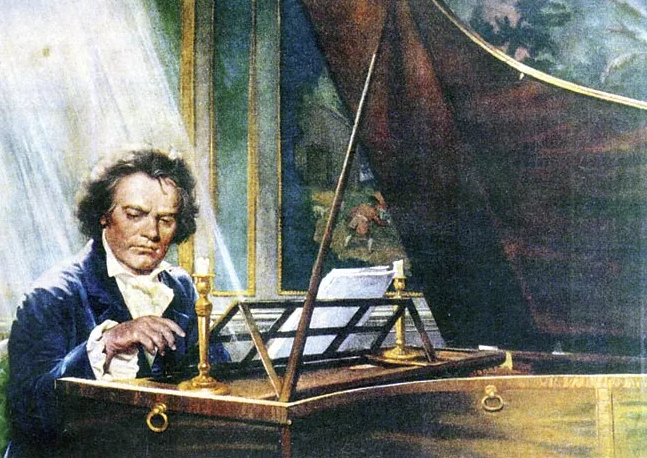
Born: 17 December 1770 – Died: 26 March 1827
Ludwig Van Beethoven was born in 1770 into a musical Dutch family. At the age 13; he published his first composition, which attracted the attention of Maximilian Frederick, elector of Bonn. It was in Frederick Maximillian’s court that Beethoven was introduced to the ideas of the enlightenment, and the Masonic and fraternal ideals. It was his Brothers in the Illuminati Lodge that would go on to support and encourage him throughout his vast musical career.
In Vienna, Beethoven met many of the musical greats of his time, including Haydn. There, he composed his nine symphonies, which transformed and revitalized European music. Beethoven believed music to be the greatest language men had, and sought to use it to awaken and enliven the human soul. His works such as Ode to Joy and his fifth symphony, are some of the most recognized and loved pieces of classical music. Throughout his life, Beethoven was influenced by the fraternal ideal of the Order of the Illuminati, which believed in fighting the abuses of State power, the abuses of religion, and superstition. In trying to awaken and enliven the human soul with his music, Beethoven produced such great works as his Ode to Joy, which is an almost universally known piece of classical music, and his 5th symphony, the opening of which is one of the most recognized chords in the entire world of music. Beethoven’s legacy is a rich thread disseminating light into the ears of humanity.
Beethoven’s music was influenced by his masonic ideals. His famous Fidelio opera tells the story of a man imprisoned for his political beliefs, and his wife’s efforts to free him. The opera’s themes of liberty and fraternity were inspired by masonic ideals. In addition, his music often featured hidden codes and symbols associated with the masonic tradition. For example, his “Symphony No. 2” contains a masonic code in its score, and “Ode to Joy” was inspired.


